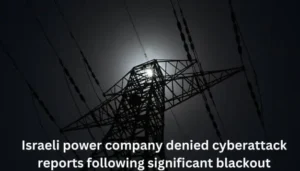
|
Getting your Trinity Audio player ready... |
A provision that would have required the Pentagon to commission an independent study on creating a U.S. Cyber Force is absent from Congress’ annual defense policy bill.
Sen. Kirsten Gillibrand (D-NY) removed an amendment from the Senate version of the massive legislation that would have required the Defence Department to contact the National Academy of Public Administration to investigate the possibility of establishing a seventh, cyber-specific military service. The compromise measure was unveiled late on Wednesday night.
The language was not included in the House’s National Defence Authorization Act draught, which probably made it less likely to be included in the final version.
Gillibrand’s plan is the result of years of growing, bipartisan annoyance over the current military branches’ persistent inability to supply U.S. Cyber Command with soldiers prepared to battle foreign enemies virtually. After the digital confrontations in Israel-Hamas and Russia’s war on Ukraine, worries about those shortcomings have increased.
The idea of establishing a cyber service has been met with resistance from Pentagon brass, who claim that Cyber Command is still developing and that such a move could confuse matters or even make the other services abandon the digital mission entirely.
Mieke Eoyang, deputy assistant secretary of Defence for cyber policy, warned reporters at a September Defence Writers Group meeting, “Be careful what you wish for: for people who think the cyber service is the answer to our current challenges in cyber personnel management, be careful what you wish for.”
“We must comprehend the advantages and disadvantages,” she remarked. “The question is, which set of problems are we willing to live with, and looking at all these things to understand that better before we decide that what we have needs to be fixed or that something else entirely is better than what we have.”
Due to a requirement in the defense policy roadmap from the previous year for the department to investigate “the prospect of a new force generation model” for Cyber Command, Eoyang stated that the DoD will assess the feasibility of establishing an independent Cyber Force.
We have this study, which instructs us to examine our model as well as current and alternative models, so we will be studying the question as instructed. We will consider the query. We’ve already started working on that.
It is anticipated that the study, which was required by Congress, will not produce its findings until the following summer.
The Cyberspace Solarium Commission’s former executive director, Mark Montgomery, stated that although it is “unfortunate” that the external evaluation was withdrawn, the report “was not a requirement for Congress to take action.”
Montgomery, a member of the board of advisors for the Military Cyber Professional Association, which called for the creation of a Cyber Force, said that lawmakers “can study the readiness rates of the individual services’ cyber elements and see that they’re very inconsistent and generally unsuccessful in meeting an overall cyber operations force that is necessary for the United States.”
Now leading the Centre on Cyber and Technology Innovation at the Foundation for Defence of Democracies, Montgomery predicted Congress would attempt to request another independent assessment in the defense bill of the following year. The think tank is scheduled to release a paper on the merits of creating a cyber military branch soon.
He also dismissed the study that Eoyang had mentioned.
“The Defence Department is grading its assignments here. Thus, Congress must view it through that lens,” stated Montgomery. “Independent actors can produce reports to support the deliberations of Congress.” They don’t require NDAA authorization.
Confident That The Final Defense Bill Will Contain Payments To Radiation Victims
A final version of the National Defence Authorization bill, which includes funding for radiation victims in the St. Louis region, is still being negotiated in Washington. Senator Josh Hawley of Missouri, a Republican, stated that he would vote “no” on the bill and attempt to block it if that funding was removed.
“I would, without a doubt,” he responded to Missourinet. “I’ll make passing as challenging as I can.”
When asked why he believed that paying radiation victims was more important right now than ensuring that active duty personnel received their paychecks and that defense systems were funded, Hawley gave his explanation. The defense bill, he replied, is “full of billions of dollars in spending on defense contractors and other giveaways to the defense industry,” and he will not allow them to obtain “fat government contracts…while the people of St. Louis die of cancer.”
Rep. Sam Graves, a Republican from Missouri’s 6th District, is certain that the bill will continue to provide funding for those affected by radiation.
“I believe that the amendment will ultimately be approved by the House. Senator Hawley did a fantastic job of including that, in my opinion, and it makes sense,” Graves told Missourinet. “I believe we will be able to keep that provision,” stated the conference committee member I serve on.
The current Radiation Exposure Compensation Act (RECA), which is scheduled to expire next year, would be extended for an additional 19 years by the amendment. Additionally, it would compensate those exposed to radiation more than fifty years ago from above-ground nuclear testing on the island of Guam and in the western United States.







